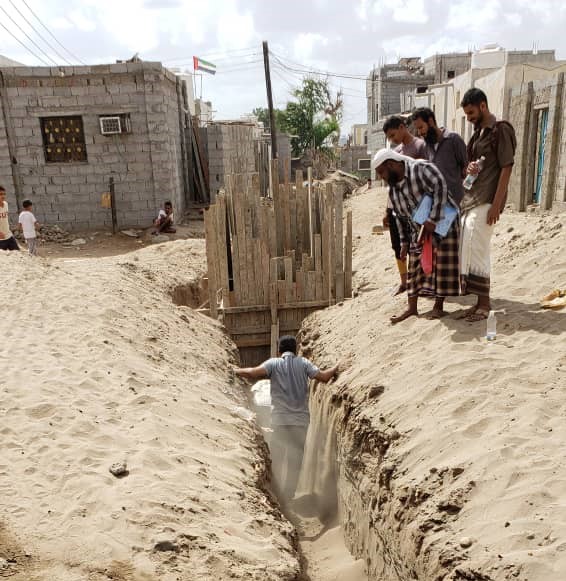Snapshot: Yemeni citizens lead community rehabilitation
March 17, 2020
Years of civil war and a lack of government services from education to clean drinking water have left ordinary Yemeni citizens deeply frustrated and disillusioned with their national leaders. Citizens of Tuban, a small town in Lahj governorate in southern Yemen, for example, have been dealing with and trying to address a dysfunctional sewage system for nearly a decade.

To respond to these frustrations and put the power to resolve local grievances in the hands of citizens, the Enhancing the Role of Citizens and Religious Leaders in Yemen’s Political Transition project, funded by the U.S. Department of State’s Bureau of Near Eastern Affairs, supports a bottom-up dialogue process that gives citizens a mechanism to express and address their concerns with other community members and local officials, helping to localize the peace process and promote community stabilization.
The project is implemented by the International Center for Religion and Diplomacy, PartnersGlobal and Partners Yemen. Over the past three months, it has launched 13 local initiatives across both northern and southern Yemen that address citizen concerns based on the issues they raise in the dialogues.
In Lahj governorate, Partners Yemen and local partner LCSO, Rowad Altanmiah (Development Pioneers in English) are coordinating the rehabilitation of the Al Wahat sewage network in Tuban, a project that the community has been concerned about for more than ten years. Partners Yemen and Rowad Altanmiah engaged community members and local government officials from the beginning of the effort and, as a result, they have been invested in its success, donating more than $8,000 of in-kind contributions to the $18,000 project. After years of frustration and a lack of a working sewage system, citizens and local government were able to fix the problem and restore an essential service to their community.
